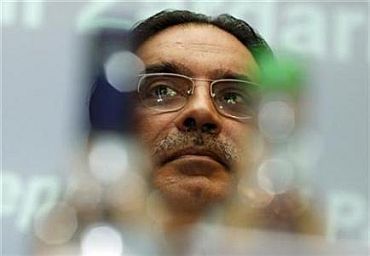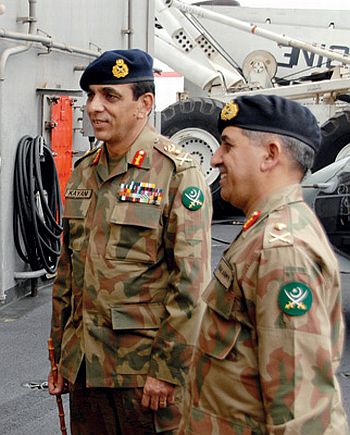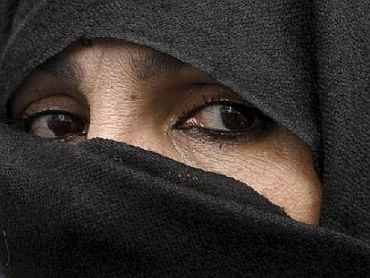In the tense post 26/11 scenario, Pakistan President Asif Ali Zardari had told the US that Islamabad would have no option but to respond militarily if India chose to launch an attack on its territory, secret US diplomatic cables released by WikiLeaks show.
In a meeting with the then US Ambassador to Pakistan Anne Patterson on January 2, Zardari had however assured that his government would not allow non-state actors to dictate state policy.
Patterson had called on Zardari to discuss the follow-up to the Mumbai investigation, and Zardari told her that there was no way that he could let India attack Pakistan.
...
Also Read:
What India told US about Pakistan Army in 2009
WikiLeaks: Zardari's rhetoric and US 'phone call'
Image: Pak Army chief Kayani with former ISI chief Shuja Pasha"There was no more politically sensitive issue in Pakistan than Kashmir," Zardari said according to the cable.
"Zardari said he had been briefed by Lt General Shuja Pasha (the ISI chief) on his meeting with DCIA (Director of the Central Intelligence Agency), and he had approved the release of 'tearline' information to the Indians.
He wanted to emphasise he (and General Kayani) were fully committed to better relations with India, the cable said.
"He (Zardari) reminded the Ambassador that it had only taken a 'phone call' from the US to ensure that Pakistan did not oppose the US/India civil nuclear deal at the Nuclear Suppliers Group," it said.
Also Read:
'India's Cold Start policy against Pak may never be used'
WikiLeaks: Zardari's rhetoric and US 'phone call'
"Zardari emphasised he had no problem making decisions, recalling that we had asked him to refuse the release of detainees in the context of 'peace deals' when the Army and ISI were pressing to do so," the cable said.
"But he said there was no way that he could let India attack Pakistan: many in the West did not understand the importance of Kashmir in Pakistani public opinion," says the leaked US cable dated January 5, 2009 and signed off by Patterson.
Zardari confirmed again at the end of the conversation that Pakistan would not allow non-state actors to dictate state policy, but that the GOP (Government of Pakistan) would respond if the Indians attacked.
Also Read:
WikiLeaks: The 8 strangest stories so far
WikiLeaks: Zardari's rhetoric and US 'phone call'
He also recommended a report done in India, which indicated that Indian Muslims were treated poorly and were among the least prosperous members of society, the cable said.
"He said that the Bharatiya Janata Party was trying to whip up anti-Muslim sentiment. Morever, there were plenty of extremist groups in India that could have assisted Lashkar-e-Tayiba," it said.
Also Read:
'US aid is pointless. Pak will continue supporting terror'





article